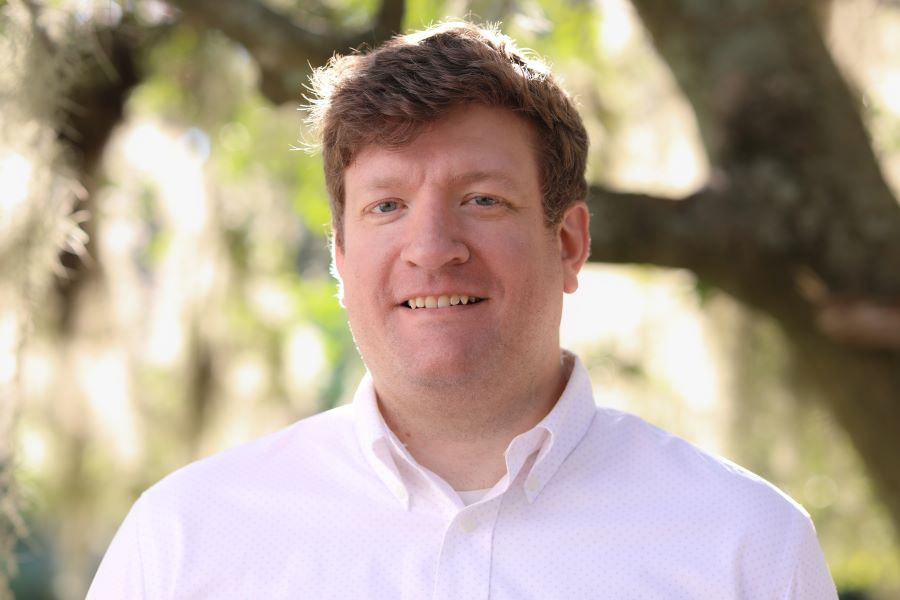FSU statistician to use NSF grant to improve computational efficiency of statistical analyses with environmental, health applications

A Florida State University researcher has been granted funding from the National Science Foundation to help reduce the amount of time it takes to conduct certain statistical analyses, slashing the interval from days to just minutes.
Jonathan Bradley, an associate professor in the Department of Statistics, part of the College of Arts and Sciences, will use the $227,000 award to virtually eliminate the need for a computationally demanding tool often used in estimate calculations and replace it with models that merge two commonly used methodologies in the field.
Bradley’s new methodology is applicable in problem areas across many disciplines that require fast estimates for large datasets, such as those concerning COVID-19 disease mapping, poverty monitoring and predicting wildfire spread.
“I feel a lot of gratitude for receiving this award,” Bradley said. “The research from this grant is particularly important for my long-term research goals, so to receive this support is extremely exciting. Much of this funding will also go towards the research of the doctoral students I direct, which is beneficial for the entire statistics department.”
Bradley’s current project details how to use conjugate models, mathematical forms that can represent prior information, to simplify steps within a Markov chain Monte Carlo computation, or MCMC, which typically takes hours or days to implement when using massive quantities of data.
“Generally, a Bayesian method allows scientists to improve estimates using what is already known about a problem,” Bradley said. “Bayesian methods combine information from a new dataset with previous knowledge about the data in a mathematical way. Spatio-temporal data are observations that are recorded at a particular time and location, and one can use the fact that nearby observations tend to be similar to improve analyses. Both methods can be combined to produce precise statistical estimates.”
Bradley’s theory doesn’t require MCMC at all for many Bayesian spatio-temporal models frequently used in estimating public health variables or environmental mitigation efforts. Avoiding MCMC in statistical modeling is an opportunity for statisticians and scientists working with huge swaths of observational information to produce almost immediate, precise estimates in today’s world of high-volume, high-speed data.
“The research from this grant is particularly important for my long-term research goals, so to receive this support is extremely exciting. Much of this funding will also go towards the research of the doctoral students I direct, which is beneficial for the entire statistics department.”
— Associate Professor Jonathan Bradley
This work aims to speed results in areas for which there is demand for real-time updates and projections, such as wildfire forecasting and disease spread, among others.
“Combining these methodologies can be extremely difficult,” Bradley said. “The information fed into spatio-temporal analyses can be complex, as the sheer amount of data from meteorology, atmospheric sciences and other fields often leads to lengthy complications within this statistical calculation. These difficulties have motivated a large community of researchers around the world to work on these issues so we can leverage prior knowledge and space-time correlations to improve real-time estimates quickly.”
Through this NSF grant, Bradley and a team of graduate students will investigate faster computational methods in collaboration with other researchers across FSU and beyond. The team will also develop software to promote the use of Bradley’s model.
Department of Statistics chair Eric Chicken said this new methodology is the leading edge of modern statistics, with exciting potential in government and environmental science applications.
“Jon is a dedicated instructor and mentor to our graduate students and a valued faculty member to the day-to-day running of our department,” Chicken said. “His original and well-cited research has consistently met NSF’s high threshold for intellectual merit.”
Bradley earned a bachelor’s degree from Rochester Institute of Technology in 2008 and earned master’s and doctoral degrees at Ohio State University in 2010 and 2013. Before joining FSU’s faculty in 2016, he worked as a postdoctoral researcher at the University of Missouri.
Bradley has co-authored more than 40 publications in the field of statistics, and he serves as an associate editor for Biometrics and the Journal of Agricultural, Biological and Environmental Statistics.
To learn more about Bradley’s work and the Department of Statistics, visit stat.fsu.edu.
